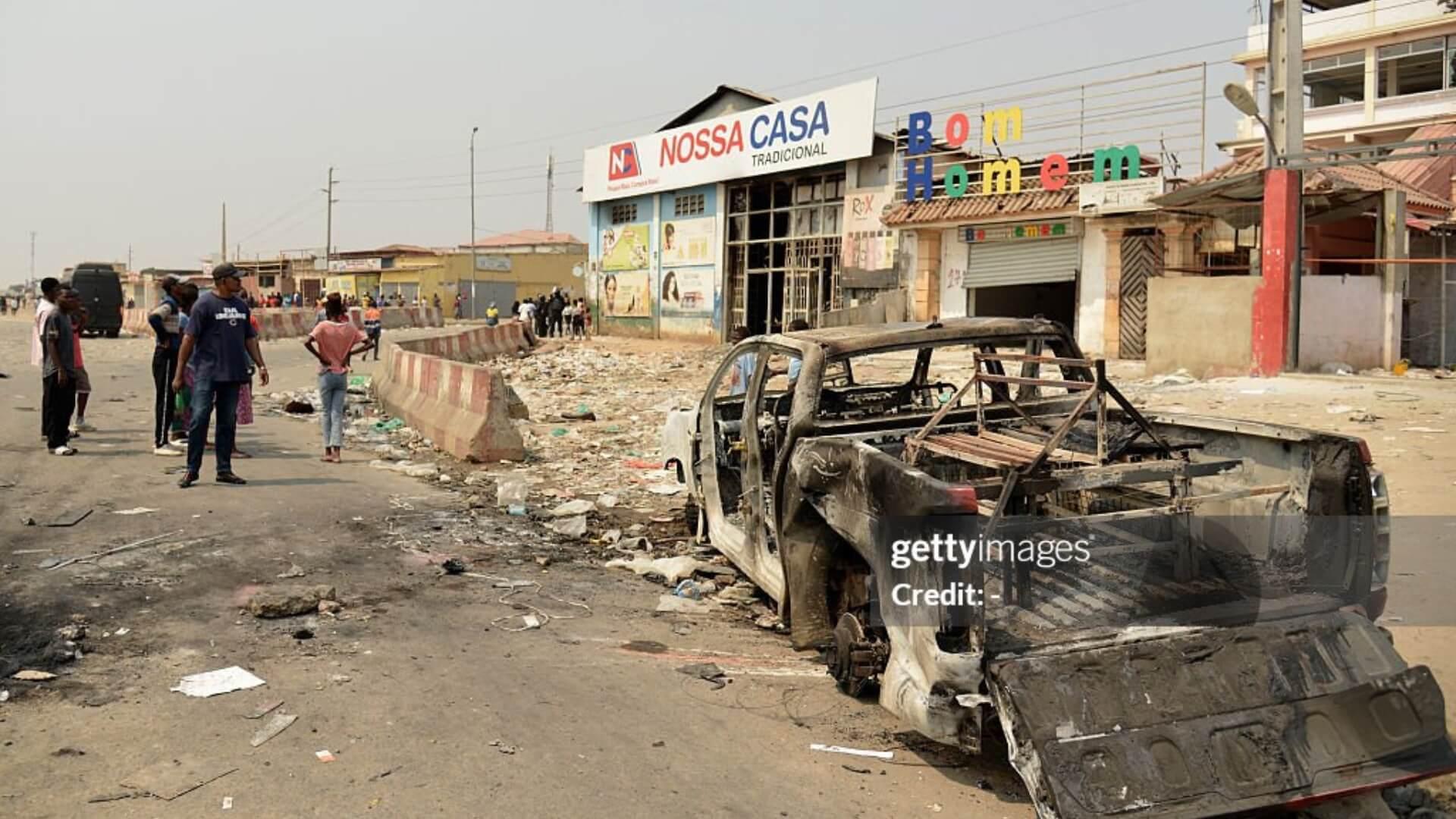Angola is in crisis as deadly protests over fuel price hikes leave 22 dead. Behind the violence lies deeper frustration over poverty, inflation, and political disconnect.
Angola has endured its most violent civil unrest in recent years following a 33% hike in diesel prices—an increase from 300 to 400 kwanzas ($0.33 to $0.43) per liter, imposed on July 1, 2025. The crisis erupted on Monday, July 29, when minibus taxi associations launched a three-day strike.
What began as an organized labor protest rapidly escalated into widespread riots, looting, and deadly clashes with security forces.
By Wednesday, authorities confirmed that at least 22 people had been killed—including one police officer—while 197 were injured and 1,214 arrested. The violence began in the capital, Luanda, before spreading to at least six additional provinces, notably Benguela, Malanje, Namibe, and Lubango, where a 16-year-old was reportedly killed by police. Officials reported extensive property damage, including the vandalism of 66 shops and 25 vehicles, as well as the looting of supermarkets and warehouses.
In response to the escalating chaos, the government deployed military forces to support overwhelmed police units and restore order. Interior Minister Manuel Homem acknowledged the deployment, citing a climate of widespread insecurity.
President João Lourenço’s cabinet convened emergency meetings, blaming “criminal elements” for turning legitimate protests into a threat to national security.
Civil society organizations, such as the Omunga Civic Association, voiced strong support for the right to protest and called on authorities to protect demonstrators. Opposition parties, including the Liberal Party, PRA JÁ Servir Angola, and the Democratic Bloc, took to social media in support of the protests, while the Patriotic United Front coalition expressed solidarity with Angolans affected by the economic crisis.
Taxi driver associations distanced themselves from the violence but maintained the strike, insisting the protests echo national suffering.
The economic backdrop is shaped by the government’s gradual removal of fuel subsidies—part of an IMF-backed reform effort that began in 2023. Subsidies, once 4% of GDP in 2024, have now fallen to an estimated 1.8% for 2025.
The reform is designed to free up public funds for sectors like health and education, but has sharply increased transportation costs, with taxi fares rising by as much as 50%.
For many Angolans, whose average monthly salary hovers around 70,000 kwanzas ($75), the soaring cost of fuel and public transport further deepens daily hardship. Nearly 60% of youth are unemployed, annual inflation is at 20%, and 46 children reportedly die each day from malnutrition.
Human Rights Watch and other organizations have condemned the Angolan police for “excessive force,” including the use of tear gas, rubber bullets, and physical assault on demonstrators—even referencing abuses during peaceful assemblies two weeks before the major unrest.
International attention has been modest. While agencies such as Reuters, BBC, Associated Press, and Euronews have reported on the crisis, official reactions from foreign governments and multilateral bodies have been limited.
The IMF has reaffirmed its support for Angola’s subsidy reforms, seeing them as crucial fiscal adjustments for long-term stability, a sentiment echoed by some global investors.
The violent upheaval severely disrupted daily life. Lufthansa canceled flights to Luanda due to security concerns; embassies, including the U.S., issued advisories; and fuel queues, business closures, and suspended public transport paralyzed the capital.
The protests also spotlight the underlying frustrations of Angolans living under the rule of the People’s Movement for the Liberation of Angola (MPLA), which has governed since independence in 1975. This is not Angola's first unrest linked to fuel prices, with similar deadly protests erupting in 2023.
By Thursday, July 31, relative calm had returned to Luanda, but a heavy security presence continued throughout the city. The government maintains that, even after the latest hike, Angola’s fuel prices remain among the lowest globally.
However, deep economic grievances linger; with presidential elections scheduled for 2027 and President Lourenço term-limited, political tensions remain high.
The recent events highlight the challenges faced by resource-rich African nations attempting to implement internationally backed economic reforms amid high poverty, persistent inequality, and public mistrust, underscoring the urgent need to balance fiscal change with social stability and public welfare.
Header image via Getty Images
Leave a comment
Your email address will not be published. Required fields are marked *





